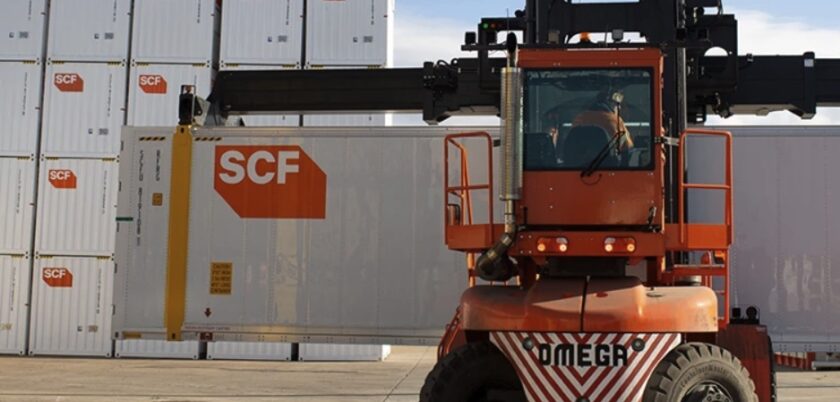How Reefer Containers Maintain Optimal Conditions for Food Storage

In the world of global trade, maintaining the freshness and quality of food during transportation is crucial. Whether it’s fruits, vegetables, seafood, dairy, or frozen foods, each type of product has specific temperature requirements that must be maintained throughout the supply chain.
Reefer containers also known as refrigerated containers, come into play. These specialized containers are designed to preserve the integrity of perishable goods by controlling the temperature, humidity, and air circulation, ensuring that food products arrive in optimal condition.
What Are Reefer Containers?
A reefer container is a shipping container equipped with a built-in refrigeration system that regulates temperature. They are designed to transport perishable goods across long distances, often across continents, while ensuring the product is kept at a steady, controlled temperature.
Reefer containers can maintain both refrigeration (cooling) and freezing temperatures, depending on the specific needs of the food being stored. This versatility makes them essential for the safe transportation of a wide range of food items, from fresh produce to frozen meat.
Temperature Control
One of the primary functions of a reefer container is maintaining a consistent temperature. Depending on the food product, this can range from a few degrees above freezing to just above refrigeration temperatures. Fresh fruits and vegetables may need a temperature of around 4°C (39°F), while frozen products need to stay at -18°C (0°F) or lower. Reefer containers are equipped with a temperature control system that maintains the desired temperature throughout the journey.
Modern reefer containers come with digital controllers that allow the temperature to be precisely adjusted and monitored. The system is designed to automatically adjust to ensure that the temperature remains consistent, even if external conditions such as ambient temperature fluctuate. This ability to maintain stable temperatures is vital for preventing spoilage and reducing the risk of foodborne illnesses.
Humidity Regulation
Apart from temperature control, humidity is another critical factor that must be managed in the storage of food. High humidity can cause mold growth, while low humidity can lead to dehydration, which negatively impacts the texture and quality of the food. Reefer containers are equipped with humidifiers and dehumidifiers to regulate moisture levels inside the container, ensuring that the food is stored in ideal conditions. For instance, leafy greens such as lettuce and spinach require higher humidity levels to stay fresh, while dry goods like nuts and grains need lower humidity to prevent moisture damage.
Air Circulation and Ventilation
Proper air circulation inside a reefer container is essential to maintain the freshness of the food. Good ventilation helps prevent the build-up of gases like carbon dioxide, which can cause produce to ripen prematurely or spoil.
Reefer containers are designed with fans and ventilation systems to circulate air evenly throughout the container. This ensures that the temperature and humidity levels remain consistent across all areas of the container, preventing hot spots or areas of excessive moisture.
Additionally, the ventilation system is also crucial in managing the release of ethylene gas, which is naturally emitted by some fruits and vegetables during storage. High concentrations of ethylene can accelerate the ripening and spoilage of certain foods, such as apples, bananas, and avocados. Reefer containers can be equipped with filters that absorb or release this gas, thereby prolonging the shelf life of the food.
Monitoring and Data Logging
Today’s reefer containers come with advanced monitoring systems that allow food producers, transporters, and retailers to track the conditions inside the container in real-time. These systems can be connected to the internet and provide alerts if the temperature or humidity falls outside the set range. In the event of a malfunction or breach in the optimal conditions, corrective measures can be taken immediately, preventing food spoilage or loss.
Data loggers inside the containers can also record temperature and humidity data throughout the transport process, creating a comprehensive log that can be reviewed upon delivery. This is especially important for businesses dealing with high-value perishable goods, as it helps provide accountability and ensure that products have been transported under the proper conditions.
Why Reefer Containers Are Essential for the Food Industry
- Preserving Food Quality: The ability to maintain consistent temperature, humidity, and air circulation is vital to preserving the texture, flavor, and overall quality of perishable food. Without proper storage, food can quickly degrade, leading to loss and waste.
- Extending Shelf Life: By maintaining ideal conditions, reefer containers extend the shelf life of food, allowing it to be transported over long distances without compromising its quality. This is especially important in international trade, where food must often be shipped for days or weeks before reaching its destination.
- Meeting Regulatory Standards: Many countries have strict food safety regulations in place to ensure that imported food meets health standards. Reefer containers help food importers and exporters comply with these regulations by keeping food at the required temperatures during transport.
- Reducing Waste: Proper storage in reefer containers helps reduce food waste, which is a significant global issue. By preventing spoilage during transit, companies can ensure that food arrives at its destination in optimal condition, reducing the environmental impact of food waste.
Conclusion
Reefer containers are indispensable in today’s global food supply chain, allowing perishable items to be transported across vast distances while maintaining their freshness and quality. With their ability to control temperature, humidity, and air circulation, these containers ensure that food products arrive in the best possible condition, helping to reduce waste, meet regulatory standards, and provide consumers with high-quality food. As demand for fresh and frozen foods continues to grow, the importance of reefer containers in food storage and transportation will only increase, making them a key player in the future of the food industry.
Spotted something? Got a story? Send a Facebook Message | A direct message on Twitter | Email: [email protected] Latest News








